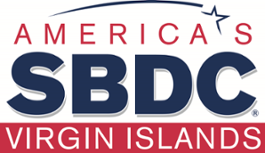Frequently Asked Questions
Virgin Islands Small Business FAQs
Will the VI SBDC write my Business plan for me?
No. The VI SBDC can assist you with developing your own business plan.
What legal entity should my business be?
There are a multitude of choices for your business entity but the most common are: sole proprietorship, partnership, C Corporation, S Corporation or Limited Liability Company(LLC). Choosing the legal structure for your business usually is a function of liability and tax considerations. Also, as businesses mature, their legal structure may change to https://americassbdc.org/find-your-sbdc/accommodate growing complexities. Look at the principles and/or investors for considerations of liability, residency or tax consequences that can influence the choice. Secondly, examine the nature of the business to gauge risks inherit in its operations. Finally, consult with your accountant and legal advisor for input on legal entity choice.
Are there government grants for my business?
Generally, there are no government grants available for small businesses. In fact, the term grant may be a misnomer, since grants simply pay for services the government needs to be done. Most government grants are awarded to non-profit organizations or local governments, not to private companies.
Does the VI SBDC make loans?
The VI SBDC does not make loans. However, the VI SBDC can assist you in preparing to obtain financing a term we coin as loan-packaging. Writing a business plan, making cash flow projections, and suggesting various sources of financing (including SBA loans) are all available to you.
Will the U.S. Small Business Administration lend me money?
No, the SBA does not make direct business loans. However, it does provide guarantees which eliminate some of the risk to its lending partners, such as banks, community development organizations and micro lenders. SBA partners lend money to small businesses based on the guidelines for each of its three loan programs. The SBA also makes some direct loans under very specific circumstances through their Disaster Loan Program. For more information, visit the SBA Disaster Assistance page.
What documents will I need to apply for a loan?
Typically, you will need the following documents: a credit report, personal financial statement, tax returns for the last three years (if currently in business, both business and personal tax returns), as well as copies of contractual agreements (for example, a copy of a lease). Depending on the situation, lenders will likely want to see a business plan, or at a minimum, financial statements demonstrating how the loan will benefit the business and be paid back. If you are seeking financing for your business, contact the SBDC for assistance.
How much does it cost to use the services of the VI SBDC?
One-one consulting at the VI SBDC is free. Most of the training is free or offered at a low-cost.
Do you have to use the services of the VI SBDC to get a business license?
No. However, we suggest that you meet with us before you start spending money on the licensing process.
Do you need a business plan to get a business license?
No. You need a business plan to use as a road map for your business. It says what you’re doing, how you’re doing it, what kind of expenses are associated with what you’re doing, what kind of money you anticipate making from doing it, etc.
Starting a Business FAQs
Why do I need a business plan?
A business plan evaluates the feasibility of your business idea and outlines every major aspect of your business, including products or services, marketing strategy, financial projections and management principles.
What type of business structure should my company have?
As there are a multitude of choices for your business entity, it is highly recommended that you seek legal counsel and professional accounting advice in choosing a business structure.
Where can I get a small business grant to start my business?
Typically there are no grants at the state or federal level to help start a small business. Announcements for counseling and training grants appear on www.grants.gov.
Growing a Business FAQs
What can I do to help my business grow?
Growth can come from a variety of sources, including expansion into new markets, government contracting, or international trade. The decision on how you should grow your business will depend on the type of business you own and your available resources. Explore the resources and opportunities available to help you grow your business by meeting with a business consultant.
Does the state or federal government offer grants to assist in growing my business?
Typically, there are no grants at the state or federal level to operate a small business. Announcements for counseling, training, or research grants will appear on www.grants.gov.
Financing and Capital FAQs
What is the difference between a direct loan and a loan guarantee?
A direct loan is an arrangement in which a lender gives money or property directly to a borrower, and the borrower agrees to return the property or repay the money, usually along with interest, at some future point(s) in time. Usually there is a predetermined time for repaying a loan, and generally the lender has to bear the risk that the borrower may not repay a loan (though modern capital markets have developed many ways of managing this risk). A loan guarantee is a loan backed by a government agency which undertakes to repay a loan in case the borrower defaults. Typically, student loans and business startup loans are guaranteed loans.
What state or federal grants are available to small business owners?
Typically, there are no grants at the state or federal level to start or operate a small business. Announcements for counseling and training grants appear on www.grants.gov. Additional federal grant information can be found at www.cfda.gov.
